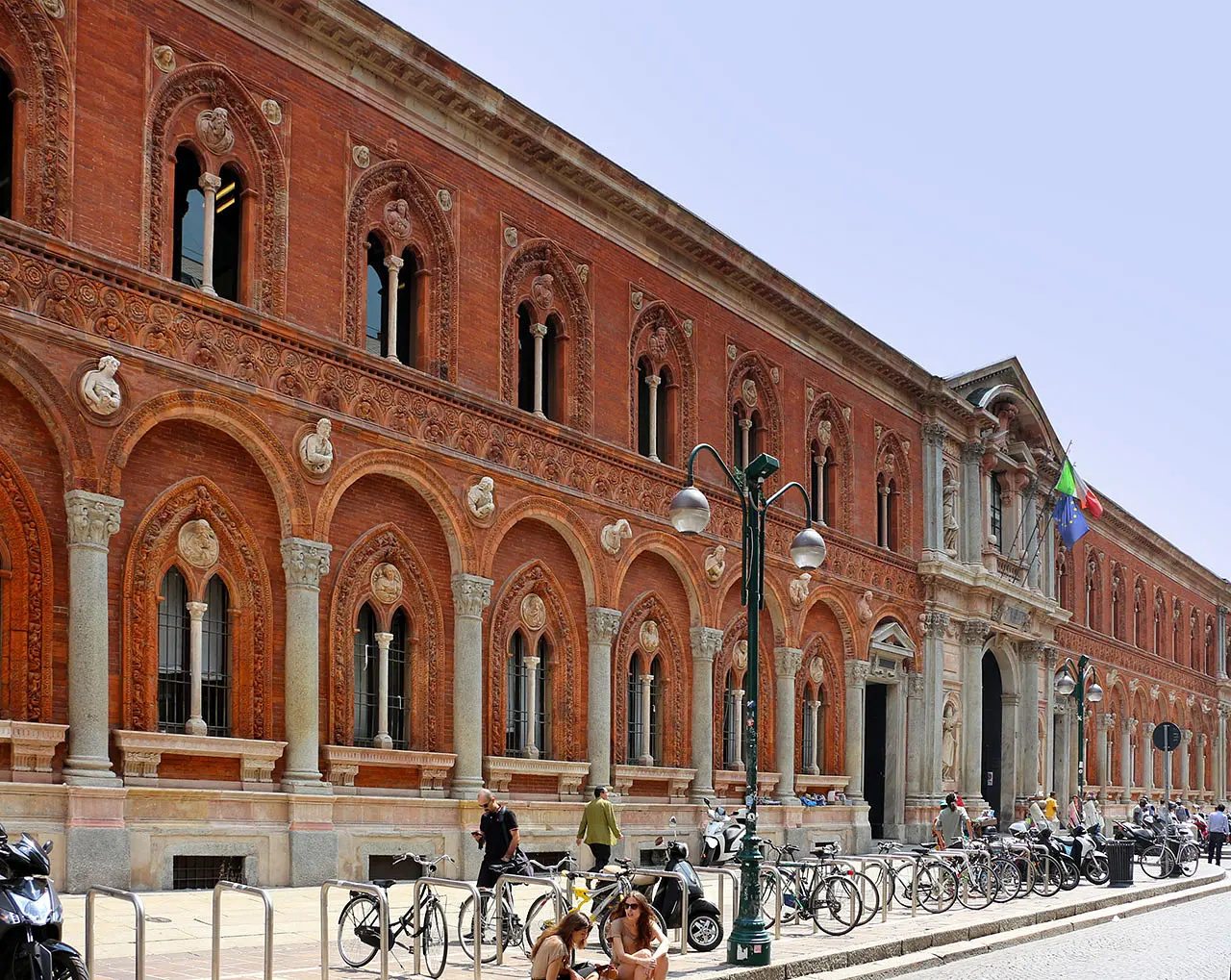SHARRYLAND


The Ca' Granda, the former major hospital in Milan.
A vibrant melting pot of art, history and culture



Where is

What it is and where it is
It looks like a royal palace with its long perspective winding down Via Francesco Sforza in Milan. The brick-colored facade harmoniously punctuated by windows and friezes is interrupted only by a majestic white portal. But this is neither a palace nor a monastery, and it is precisely by entering and crossing its inner courtyards that not only does it seem to go back in time, but one also grasps that charge of positivity that one can only breathe inside the university university that is headquartered here at Ca' Granda.
Why it is special
Before becoming a cultural hub teeming with life, this building was Milan's Ospedale Maggiore, designed to be a beacon in the medicine of the time but also, through the refinement of its forms, a symbol of the power and philanthropy of the Sforza family. It is a place I love very much because it is one of the most representative of the Milanese Renaissance and, although it is somewhat neglected by tourists, in importance it can rival the Duomo and Castello Sforzesco.
Not to be missed
There are some very special rooms inside the Ca' Granda that can be visited through ArSe, the Path of Secrets. The rooms themselves have no special decorative features, but they tell a very evocative story. One of them is the hospital's Historical Archives, with documents dating back to its founding. The other is the Sepolcreto dell'Annunciata, the crypt of the church attached to the Hospital that was an ossuary for its dead. Right here, for example, the remains of the victims of the Five Days of Milan were kept. If you love to immerse yourself in the evocative atmosphere that only places so rich in history emanate, you cannot miss this visit.
A bit of history
The building now occupied by the University of Milan was once the city's ancient hospital. It was Francesco Sforza, who had recently seized power, who wanted it built to bring together all the small welfare facilities in the city in the 15th century. He commissioned a prestigious architect, Antonio Averluino known as Filarete, who had been brought in from Florence, but the work went on for several centuries. The hospital became one of the most innovative places of care in Europe, where the history of medicine can be traced.
Trivia
In some ways the Ca' Granda could be called a museum of itself, because it preserves echoes of hospital life in the past. This is clearly seen in some of the internal courtyards that have names that recall their specific function in the hospital. For example, in the Chiostro della Ghiacciaia you can see the ancient cistern used to collect the snow used to preserve food, while in the Chiostro dei Lavatoi you can see the foundations of what used to be the hospital's bathrooms.
Enter the Map of Italy's Undiscovered Wonders and find treasures where you least expect it... Inspire, Recommend, Share...
Contact
Collections
The Map thanks:
Enter the Map of Italy's Undiscovered Wonders and find treasures where you least expect it... Inspire, Recommend, Share...
Where is

Contact
Collections

